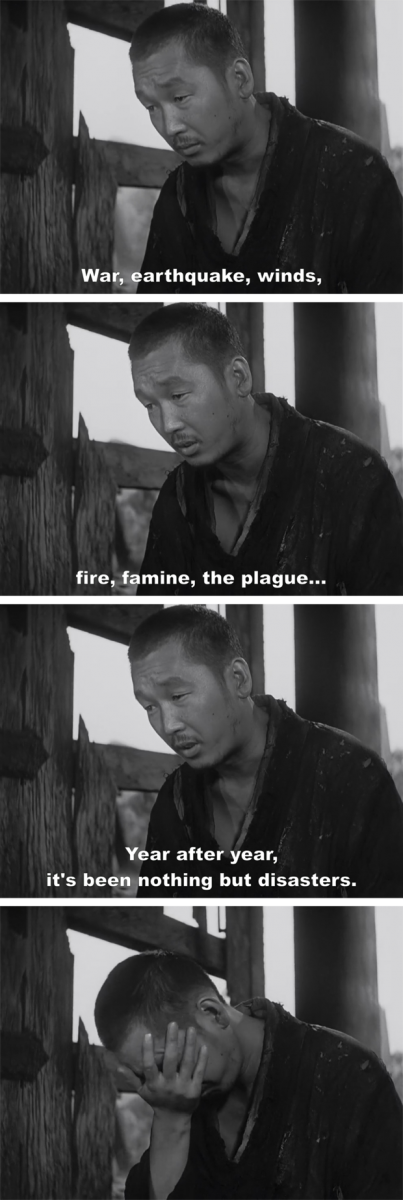An iconographic and text archive related to communication, technology and art.
☛ Rashomon by Akira Kurosawa, 1950, 00:05:00. The four frames above are from the restored version (2008).
“War, earthquake, winds, fire, famine, the plague. Year after year it’s been nothing but disasters.”
Akira Kurosawa explains Rashomon to his assistant directors:
However, one day just before the shooting was to start, the three assistant directors Daiei had assigned me came to see me at the inn where I was staying. I wondered what the problem could be. It turned out that they found the script baffling and wanted me to explain it to them. “Please read it again more carefully,” I told them. “If you read it diligently, you should be able to understand it because it was written with the intention of being comprehensible.” But they wouldn’t leave. “We believe we have read it carefully, and we still don’t understand it at all; that’s why we want you to explain it to us.” For their persistence I gave them this simple explanation:
Human beings are unable to be honest with themselves about themselves. They cannot talk about themselves without embellishing. This script portrays such human beings–the kind who cannot survive without lies to make them feel they are better people than they really are. It even shows this sinful need for flattering falsehood going beyond the grave—even the character who dies cannot give up his lies when he speaks to the living through a medium. Egoism is a sin the human being carries with him from birth; it is the most difficult to redeem. This film is like a strange picture scroll that is unrolled and displayed by the ego. You say that you can’t understand this script at all, but that is because the human heart itself is impossible to understand. If you focus on the impossibility of truly understanding human psychology and read the script one more time, I think you will grasp the point of it.
This is an excerpt from Something Like an Autobiography by Akira Kurosawa, translated by Audie E. Bock, Vintage Books, [1982]1983 (Amazon, Google Books). Read more from this excerpt over at the Criterion website.
- By Philippe Theophanidis
- on
- ― Published in Art, Communication, Movies
- Tagged: catastrophe, chaos, community, destruction, disaster, earthquake, Fukushima, Kurosawa, murder, order, violence

